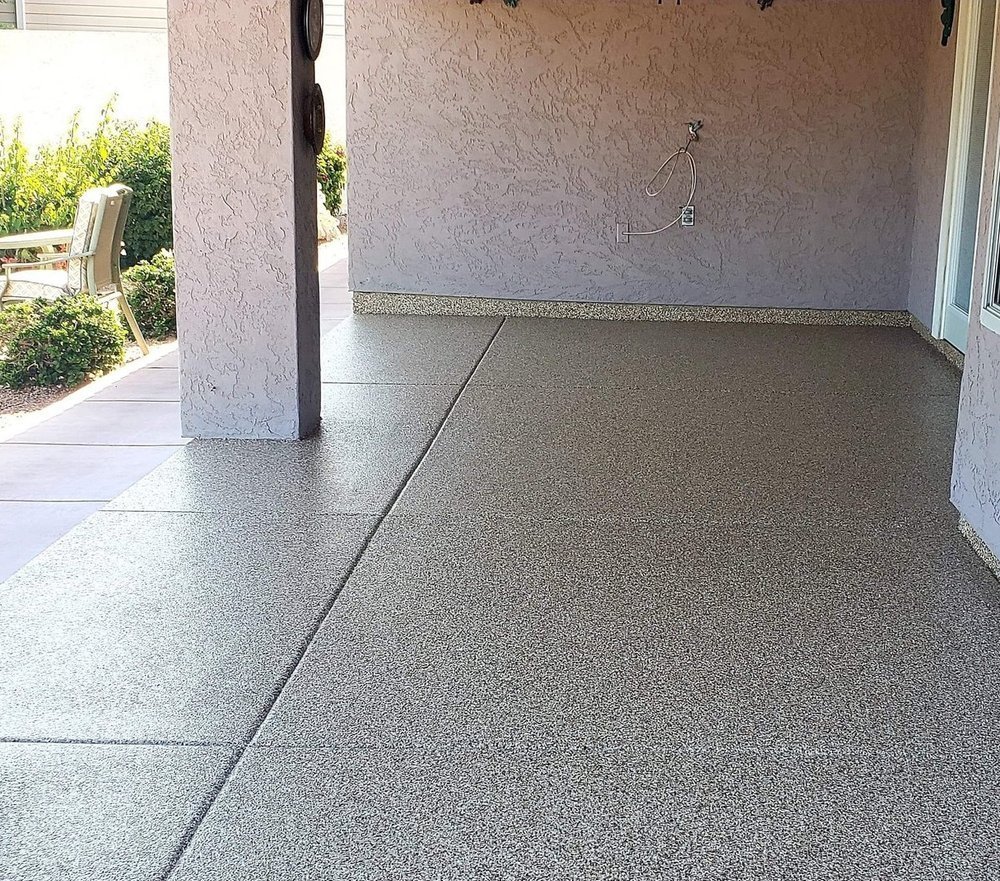
Epoxy flooring is a durable as well as attractive solution for various applications.
Let’s dive into the world of epoxy flooring and find out what is the best and ideal solution for our floors.
When it comes to flooring options, epoxy flooring has gained immense popularity due to its durability and aesthetic appeal. Epoxy flooring is a floor coating that uses resin and hardener to create strong, durable and glossy finish.
In this guide we will explore what epoxy flooring is, its type, benefits and how to choose the best option for your space.
What is epoxy flooring?
Epoxy flooring is strong and changeable concrete floor coating option made by mixing resin and hardener. The hardener provides the required strength and stability while the epoxy resin acts as a binder. When these two components are mixed, a chemical reaction takes place resulting in forming a durable and rigid surface.
You can apply epoxy flooring on different surfaces like concrete, metal and wood. It is suitable for various applications like epoxy flooring for house to industrial use.
Types of Epoxy Flooring
We now know and understand the use of epoxy flooring additionally we will now discuss its type.
There is a wide variety of epoxy floor installation in the market. Each type has unique benefits and characteristics but we will only discuss a few of the most common types.
- 1 . Self-Dispersing
- 2. Self-Levelling Epoxy
- 3. Epoxy Mortar Flooring
- 4. Quartz-Filled
- 5. Anti-static Flooring
- 6. Epoxy Flake Flooring
- 7. Epoxy Terrazzo Flooring
- 8. Epoxy Vapour Barrier Flooring
Type #1: Self-Dispersing Epoxy Flooring
Self-dispersing epoxy floors are strong and seamless flooring surface that spreads evenly when applied on the floor. It creates a smooth and durable finish. Warehouses and factories often uses epoxy flooring because it can handle heavy traffic, impacts, and chemicals.
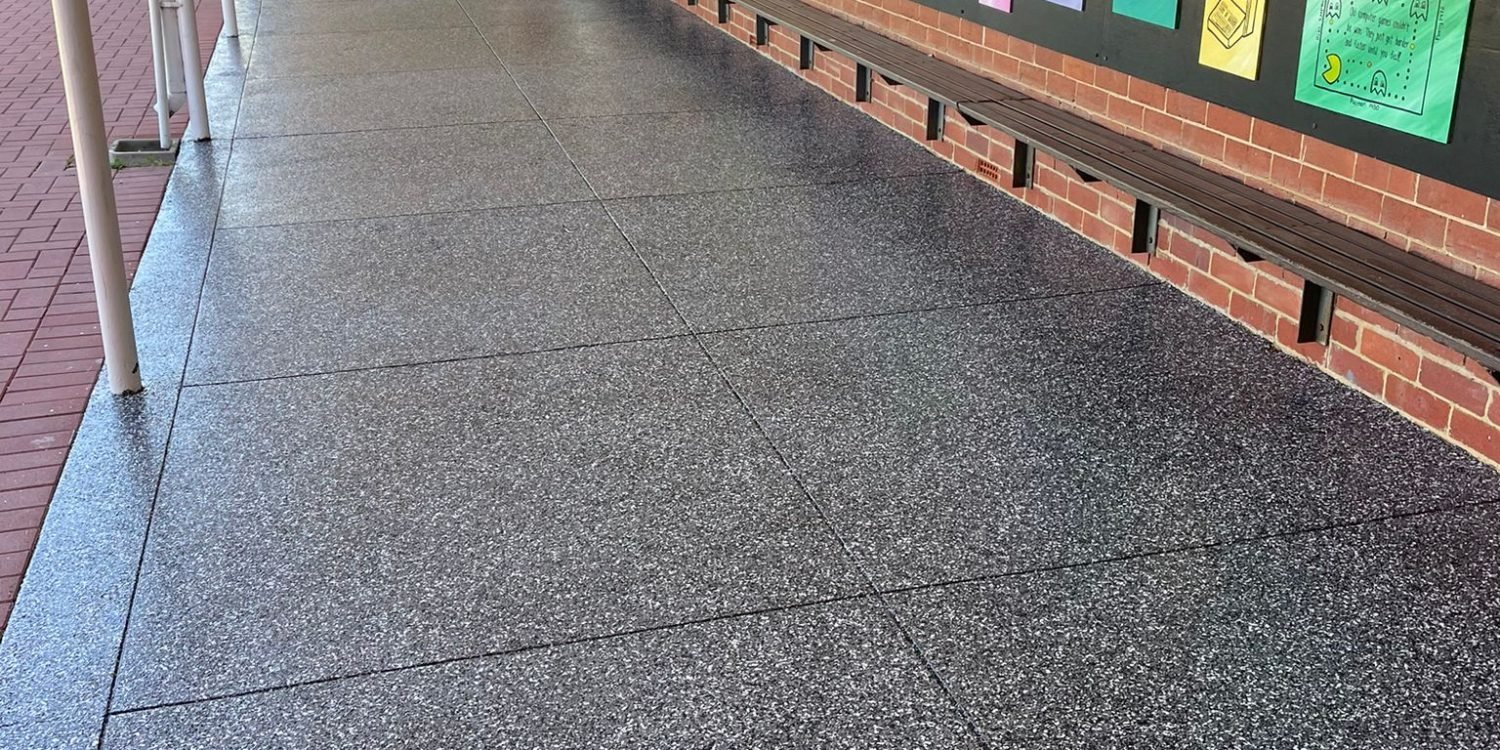
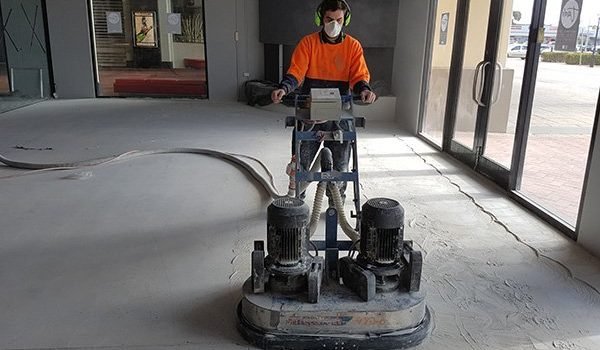
Type #2: Self Levelling Epoxy Flooring
Self-levelling epoxy floors creates a smooth, seamless flooring surface by spreading liquid epoxy that fill cracks and imperfections. It’s durable, easy to clean, and often used in commercial and industrial flooring for a polished, professional look.
Type #3: Mortar Epoxy Flooring
Epoxy mortar flooring is a heavy-duty flooring solution made from a blend of epoxy resin, sand, and cement. It creates a thick, seamless, and durable surface that can handle high-impact and chemical exposure. This type of flooring offers long-lasting protection and a smooth as well as easy-to-clean finish.
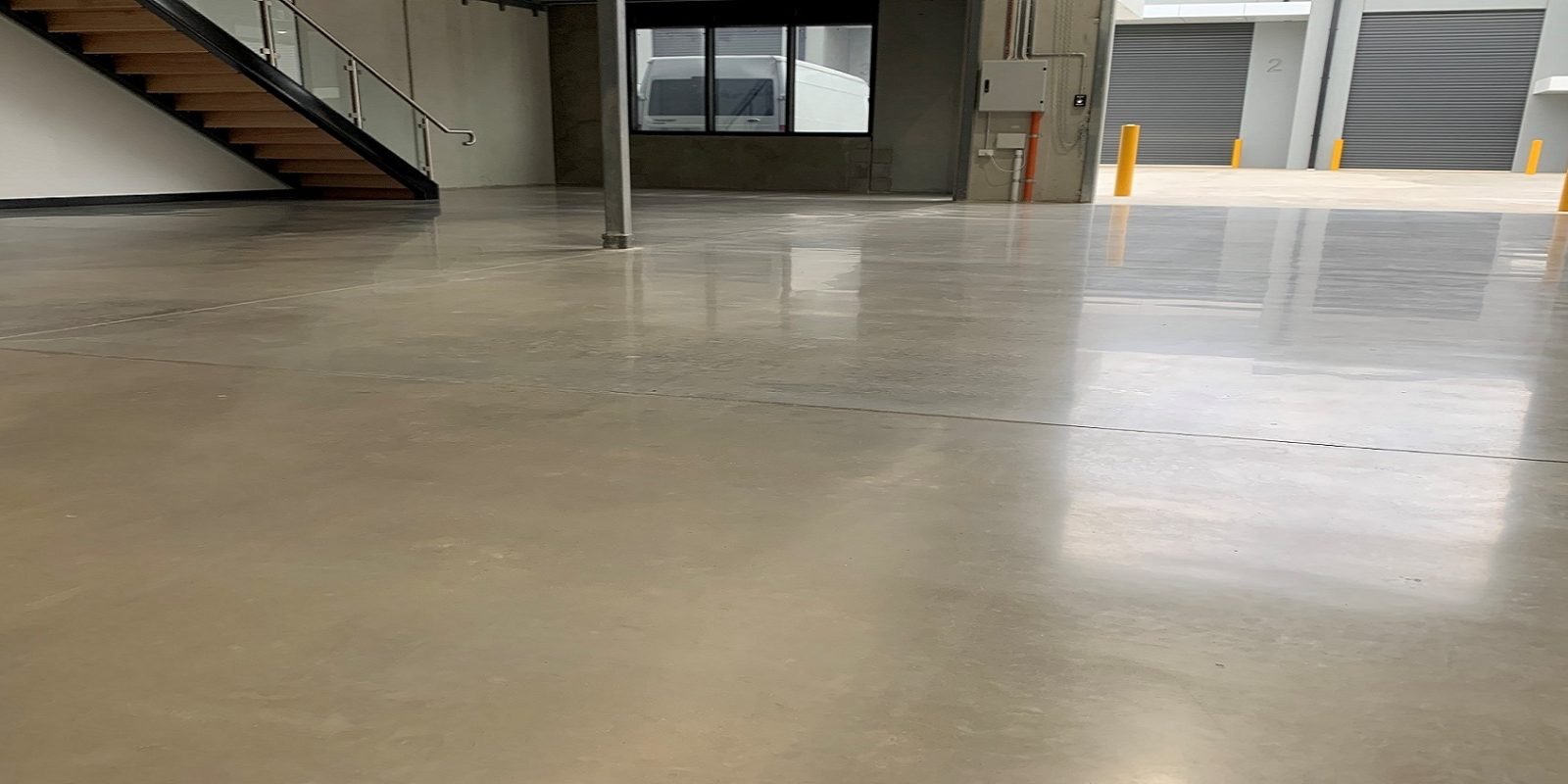
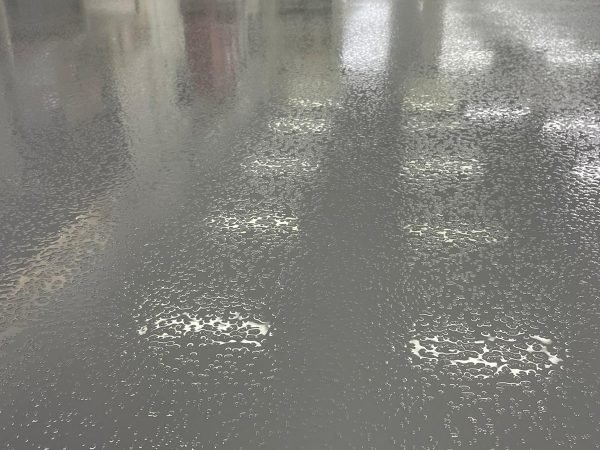
Type #4: Quartz-Filled Epoxy Flooring
This type is a durable and decorative flooring solution made from colored quartz sand mixed with epoxy resin. This type of flooring offers excellent slip resistance, impact strength, and is ideal for high-traffic areas. It combines beauty and performance, creating a seamless flooring surface that’s perfect for commercial and industrial spaces.
Type #5: Anti-Static Epoxy Flooring
This type of industrial flooring is a smooth, durable floor coating that prevents the buildup of static electricity. It forms a thick, seamless and durable surface that can handle heavy impacts and chemical exposure. This flooring provides smooth, easy-to-clean surface that also enhances safety by reducing the risk of static discharge.
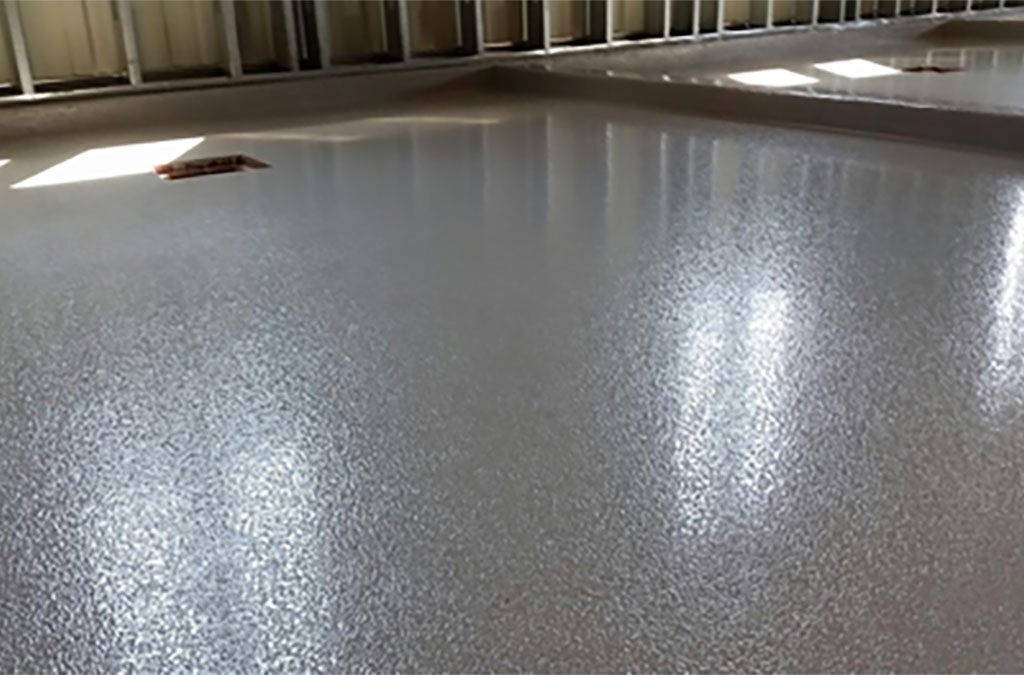
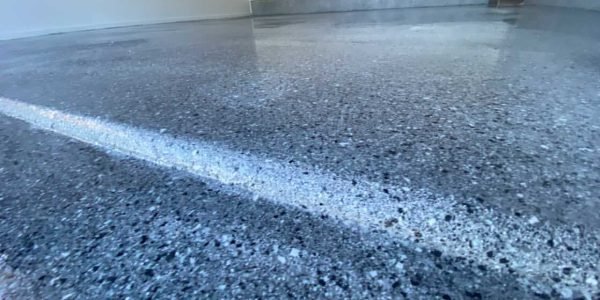
Type #6: Epoxy Flake Flooring
Epoxy flake flooring mixes coloured vinyl flakes with epoxy resin to create a textured, spackled finish. This flooring is popular for garages, commercial spaces, and busy areas because it resists to stains, scratches, and chemicals.
Type #7: Terrazzo Epoxy Flooring
Epoxy terrazzo flooring is a tough and good looking floor. They mix epoxy resin with decorative materials like marble, glass, granite chips. It creates a seamless flooring, high-gloss finish that’s both stylish and easy to maintain. This flooring is popular in stores and offices because it can handle a lot of foot traffic and comes in different designs.
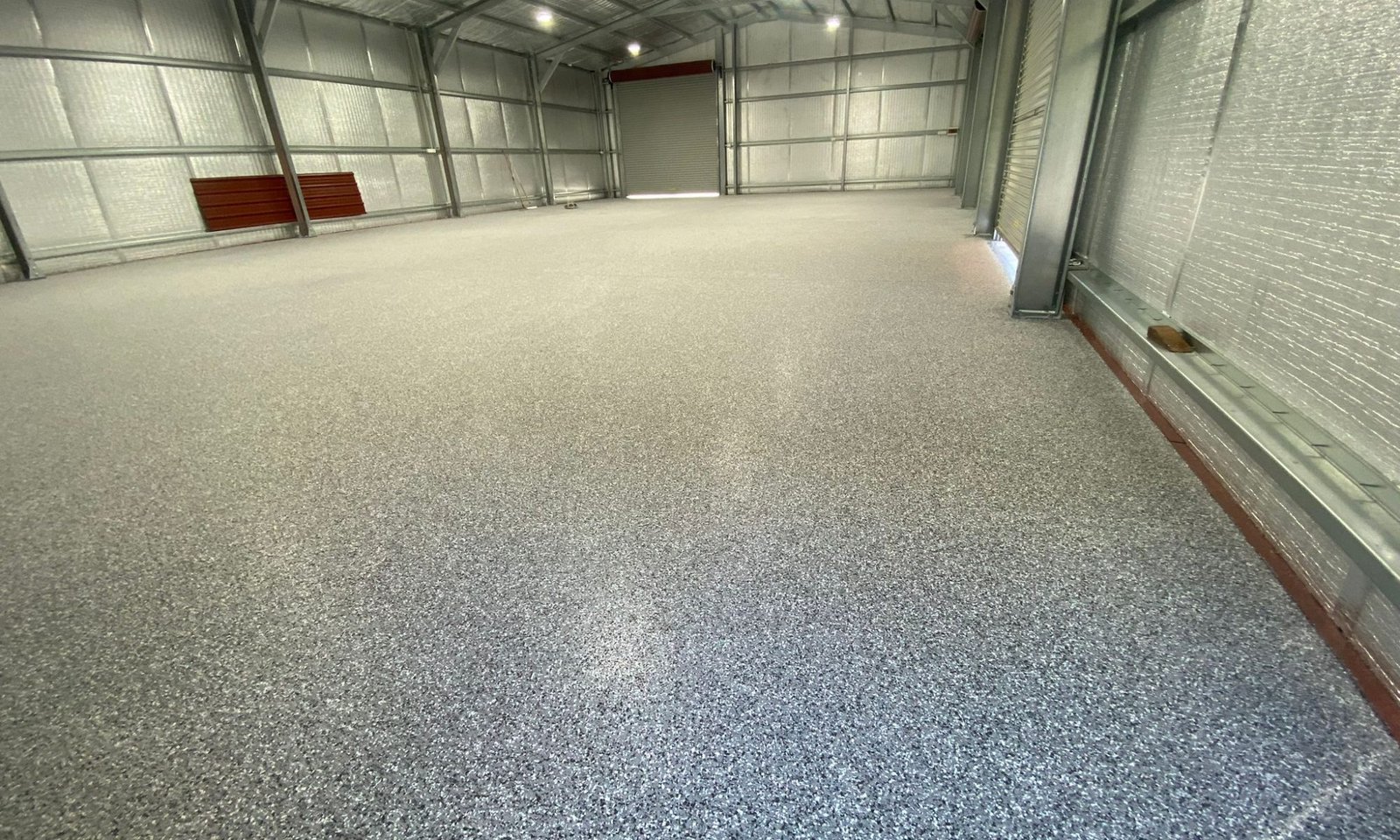
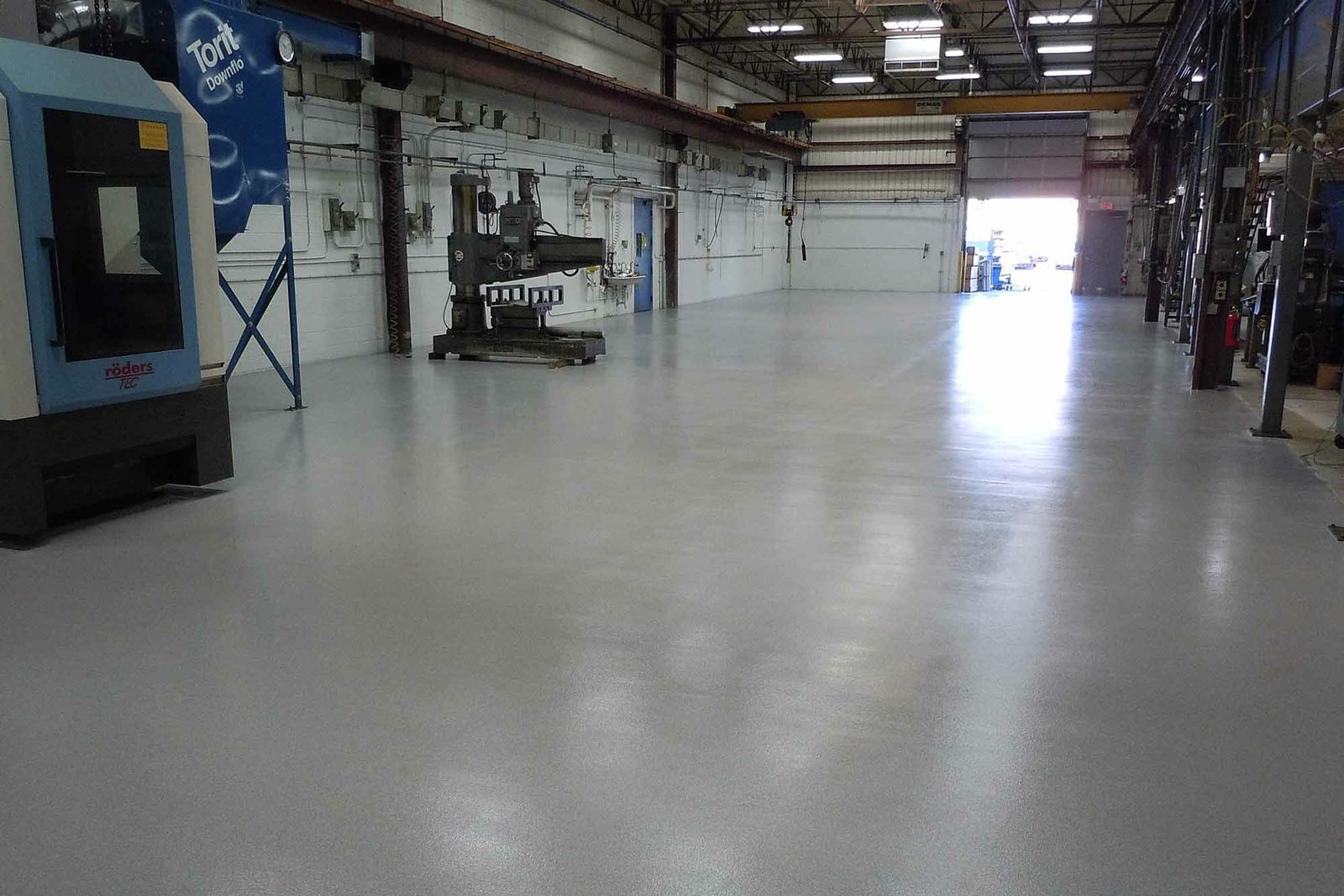
Type #8: Epoxy Vapour Barrier Flooring
Epoxy vapor barrier flooring is a protective layer applied to concrete floors to block moisture from seeping up. It helps in preventing issues like mold and mildew by keeping water out. Ideal for areas with high humidity or moisture, this flooring keeps your surface strong and long-lasting.
Benefits of Epoxy Flooring
These type flooring offers many benefits including:
- Durability: Epoxy floors stay very strong and resist damage, making them perfect for busy places.
- Easy Maintenance: Due to its non-porous characteristics it is easy to clean and maintain the hygiene of the floors.
- Chemical Resistance: Epoxy floors are resistant to chemicals and other types of liquid. This makes it an ideal solution for commercial and industrial spaces.
- Aesthetic Appeal: Its glossy surface makes the floor look more appealing and attractive. You can make your old floor look alive again with highly aesthetic and glossy floors.
- Cost Effective: Compared to other flooring options, epoxy flooring is the most cost effective and affordable. Due to its long run lifespan, every penny that costs is worth it.
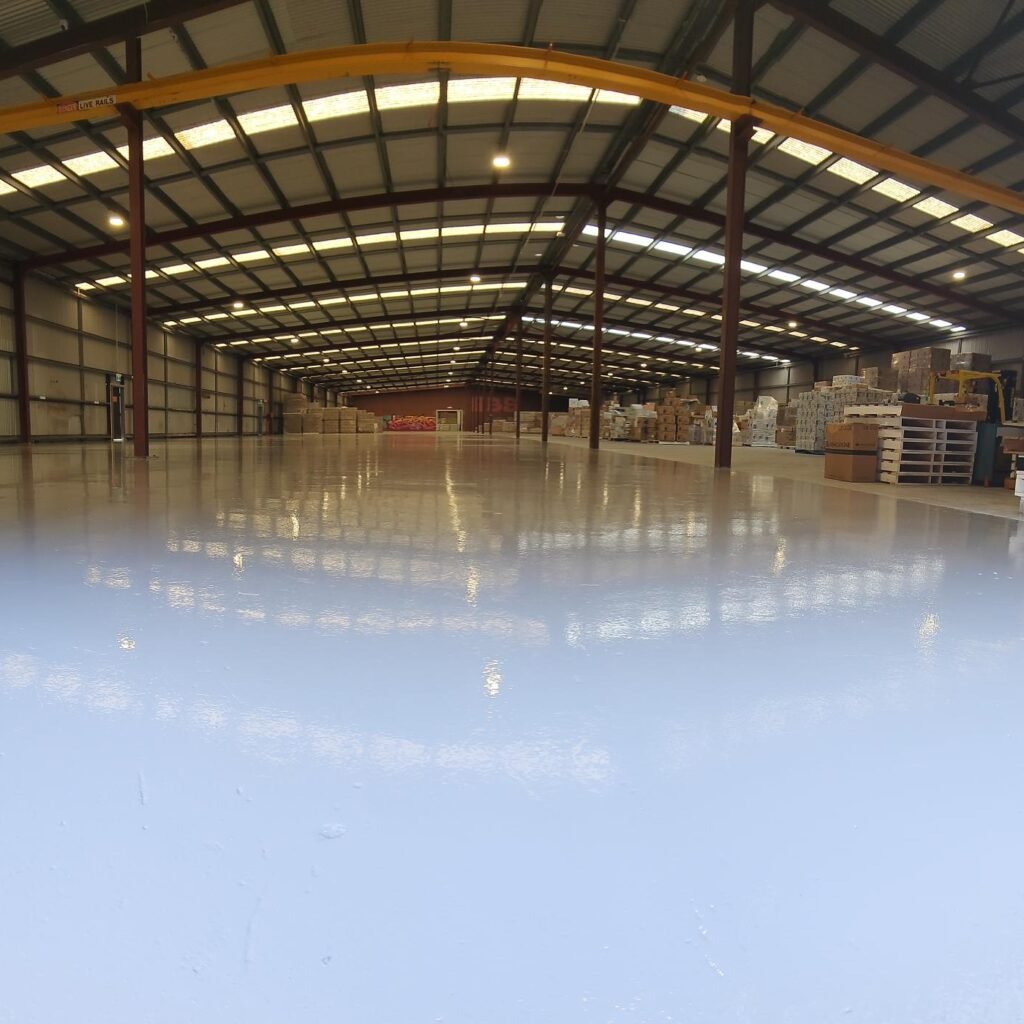
How to choose the ideal epoxy flooring?
While choosing the ideal flooring you should consider the following options:
Two-Part Epoxy Floor Coating with 100 Percent Solids:
It is a durable, high-performance flooring solution. It consists of two components mixed together to form a thick, hard coating that doesn’t shrink or lose thickness as it cures.
Two-Part Water-Based Epoxy Floor Coating:
It is a strong and eco-friendly flooring solution and it combines two components to create a strong, water-resistant surface. Also this coating is easy to apply and has low odour, additionally provides excellent durability. This makes it perfect for high-traffic areas like garages and warehouses.
One-Part Floor Coating:
It is a convenient ready-to-use floor paint. Moreover it comes pre-mixed in a single container, making it easy to apply without the need for mixing separate components. Additionally this type of coating dries quickly and also offers good protection, and is ideal for DIY projects.

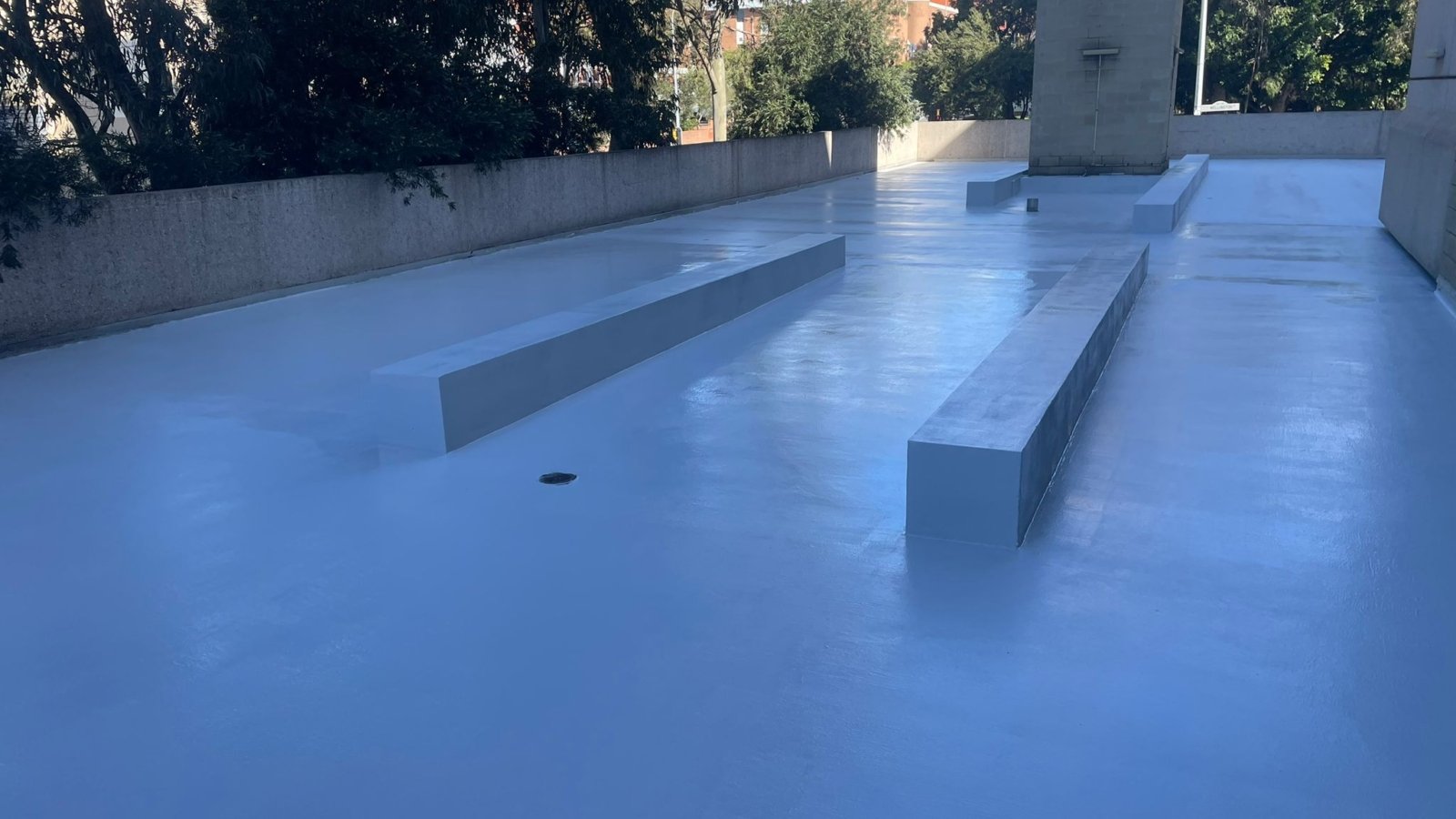
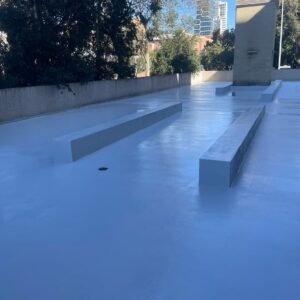
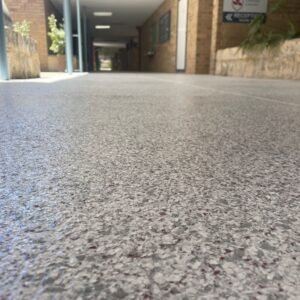
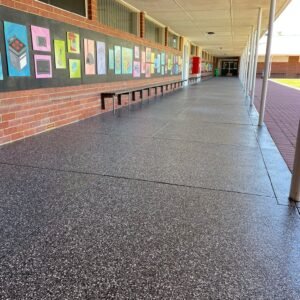
Add a Comment